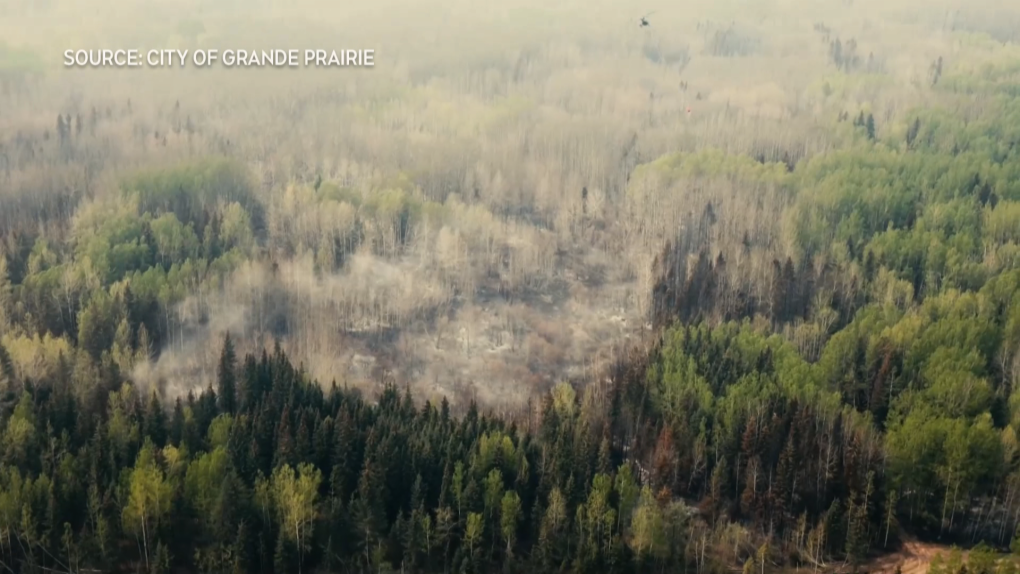$166,000 in unrecovered costs for City of Grande Prairie from helping evacuees

About $166,000 toward helping emergency evacuees may not be recovered by the City of Grande Prairie.
The city believes the amount is not eligible for reimbursement from the province due to “inconsistency and unclarity in provincial legislation and regulation.”
“There’s a lot of burden on our administration as the host municipality in regards to making sure that everything that we’ve paid for is reimbursed,” said Mayor Jackie Clayton.
“It’s not significant in the scheme of the operation of the City of Grande Prairie; however, it’s not our expenses and (we are) happy to host people in their time of need, we’ve said that as a municipality over and over, but it shouldn’t come at a cost to our taxpayers.”
The city is struggling to get reimbursements for deposits on water bottles, damage to hotel rooms, and paying for rooms that needed to be booked but were not used.
Grande Prairie Regional Emergency Partnership (GPREP) director Jennifer Wood said that although some items are small, they add up to a great cost.
The shortfall in funds comes from response to three GPREP activations: Chuckegg Creek in 2019 and last year’s Dunes West fire as well as hosting NWT evacuees.
Municipalities hosting evacuees are reimbursed through the provincial Disaster Recovery Program, but some social services provided to evacuees are not being covered, according to the city.
During a March 27 Committee of the Whole meeting, it was recommended council endorse a resolution on establishing a provincial level of service for Emergency Social Services.
The resolution asks the province to establish a list of services required for hosting an external community to meet evacuees’ “basic survival needs.”
The resolution explains that the host community’s taxpayers are otherwise left on the hook.
“During an emergency when a host municipality is asked to accept evacuees on short notice, there is verbal reassurance that all costs will be covered, but there is not enough time to prepare a written agreement,” reads the resolution’s backgrounder.
“Even when trying to clarify expectations and eligibility for cost recovery through the province, the answers will vary from one day to the next as staff changes occur and new staff are unaware of previous decisions.”
It also notes that the host community’s requirement to apply through the DRP delays regaining recovery costs can take years.
City Manager Shane Bourke said on March 22, the city received about $230,000 from a DRP claim of $270,000 from the Chuckegg Creek disaster in 2019.
“About $40,000 they didn’t reimburse, there’s a whole bunch of reasons for that; it could be an audit of timesheets, and they let lots and lots of little things; it’s nothing major, but they all are cumulative costs.”
If passed by city council, the resolution will be presented to Alberta Municipalities at the fall conference.
Additionally, the committee directed administration to bring back a resolution for potential efficiencies in the Emergency Response Plan that will also be submitted to the fall conference.
“There is a DRP handbook which identifies which costs should be included, but when it gets further into the emergency social services, there’s not a clarity,” said Rory Tarant, Director of Intergovernmental Affairs.
He noted it’s unclear if additional costs like damages to a hotel room or transportation to medical appointments for evacuees are covered under the DRP.
Coun. Dylan Bressey noted events such as hosting evacuees also takes time away from senior city management.
“I think we need to start having a conversation about GPREP only activating for X amount of days in a year to serve residents from outside of our community, and then after that, sorry province, you’re going to have to come in and manage this,” he said.
“It’s one thing when it’s one summer of long activations, but now it’s becoming summer after summer after summer.
“I’m really worried about the strategic priorities that we’re not moving forward the way we could if we weren’t consuming such a big part of our senior management bandwidth every single summer.”
View original article here Source









